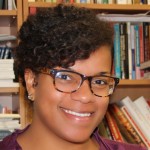Book Review of “Trauma and Forgiveness: Consequences and Communities” by C. Fred Alford. The review was written by Brandie Reeder Williams.
Having grown up in what is affectionately known as the “bible belt” of rural North Carolina, the virtue of “forgiveness,” was always a taken-for-granted concept, one cloaked in the easy black-and-white morality of “right and wrong.” My orientation to, and understanding of forgiveness, was espoused through both myth (“forgive others or God will not forgive you in heaven,”) but also through folklore and narrative; through cautionary tales told about people who just “couldn’t forgive…got sick, and died.” Forgiveness then, was in every situation both a moral obligation and beneficial to one’s own “healing,” physically and emotionally.
But what if, in some situations, forgiveness doesn’t heal? What if unforgiveness is an option? When is quick forgiveness a cop-out for the sort of soul searching and grieving required to heal from a traumatic event? In a seminal work by C. Fred Alford titled Trauma and Forgiveness: Consequences and Communities, the author challenges us to both broaden and deepen our understanding of the black and white worlds of forgiveness and grudges as it pertains to groups who are victims of horrific violence and trauma.
While reading this book, you’re confronted with a myriad of feelings and new questions to ponder. How do traumatized groups view themselves and their experiences? What are we asking of trauma victims when we press upon them the urgent need to forgive their transgressors? Divorced for the most part, from the moral and religious argument that forgiveness is “required” by a deity, or absolutely necessary for personal healing, Alford fearlessly presents the argument that not only is forgiveness not always required, often it is inappropriate to be asked for, or given unless it meets certain ethical standards and steps (see page 99). What I liked most about the author’s approach, was the weaving of narrative and theory; we are offered reflections, holocaust narratives and case-studies that help the reader both digest the content and have concrete examples of the psychoanalytical theory presented.
I found his argument against absolute forgiveness both compelling and thought provoking. I think that though this discussion of forgiveness relates to traumatized groups, the themes and tenants can easily be adapted to traumatized individuals as well. It is a must read for scholars of forgiveness and trauma, but also individuals who want to broaden their understanding of trauma, forgiveness and redemption.
Interested? Come to the open lecture by Prof. Alford on October 4th, 2016, organised by the Bahá’í Chair for World Peace. More information: click here.
About the author
 Brandie Reeder Williams is staffer, researcher, and blogger for the Bahá’í Chair for World Peace. She holds a Master’s of Public Administration from UNC Greensboro, and works to champion issues related to social justice, women’s rights and community development.
Brandie Reeder Williams is staffer, researcher, and blogger for the Bahá’í Chair for World Peace. She holds a Master’s of Public Administration from UNC Greensboro, and works to champion issues related to social justice, women’s rights and community development.
For more information about Brandie: Twitter.

You have me interested! Now I want to read more! I never even pondered the possibility that forgiveness was not completely necessary. I am interested in looking at more research on this, thank you!